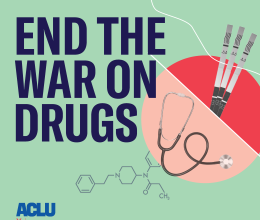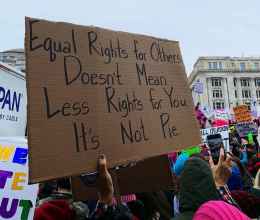Last night I had dinner with friends of mine -- a biracial couple with two beautiful biracial children. We started discussing racism in Maine and across the country. We agreed that in fifty years since the historic March on Washington for Jobs and Freedom, we've made tremendous progress toward the goals of racial equality and justice. The presidency of Barack Obama sends a powerful message to every black child that someday he could be President too. At the same time, the death of Trayvon Martin sends an equally powerful message to mothers and fathers of black children that their sons could be one of the many black youth who are statistically more likely to be victims of violence than white children. We still encounter racism in our communities and our systems. Structural inequalities persist including racial profiling and the terrible problem of over-incarceration. Mass incarceration is the new Jim Crow as our country locks up more people in total and per capita than any other country, and one in three black men are likely to spend time in prison or jail at some point. Even in Maine, the least racially diverse state in the country, blacks are twice as likely to be arrested for marijuana possession than whites, even though marijuana usage rates are the same.
Perhaps, almost as dangerous as overt racism is complacency. Some feel that we have reached a point in America and Maine where race no longer matters. They couldn't be more wrong. In his historic "I Have a Dream" speech fifty years ago today, Dr. King spoke to “the fierce urgency of now. “ You can read the full text of the speech here or watch it here. He said that now is not the time to “take the tranquilizing drug of gradualism” but rather he said, “Now is the time to make real the promises of democracy.” These words ring as true as they did 50 years ago. Now is the time for all of us to make real the promises of democracy and commit ourselves to greater awareness and action to confronting racism in our state and in our culture. Today, we celebrate the progress we have made toward racial equality and justice for all, but we must also rededicate our efforts to confront racism where we see it and to advocate for laws and policies that will end racial discrimination and make real the hopes of those who marched on Washington fifty years ago. We must do this for ourselves but also for the next generation and for the health of our democracy.









